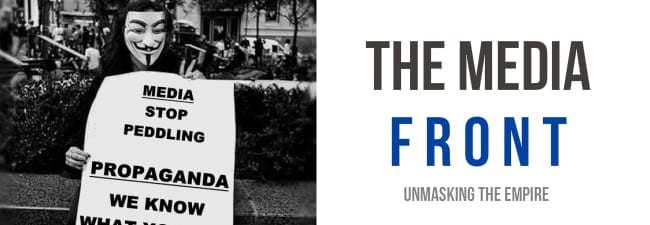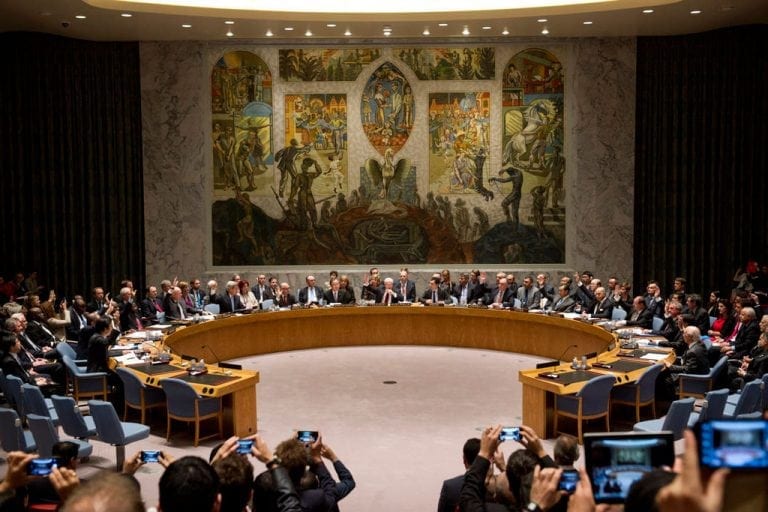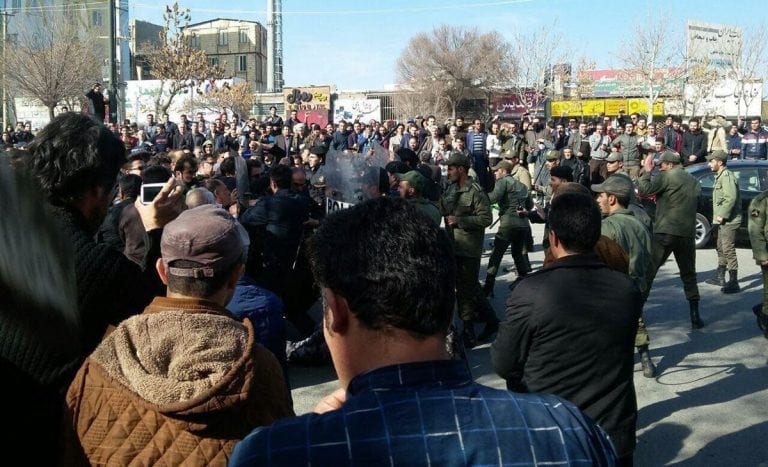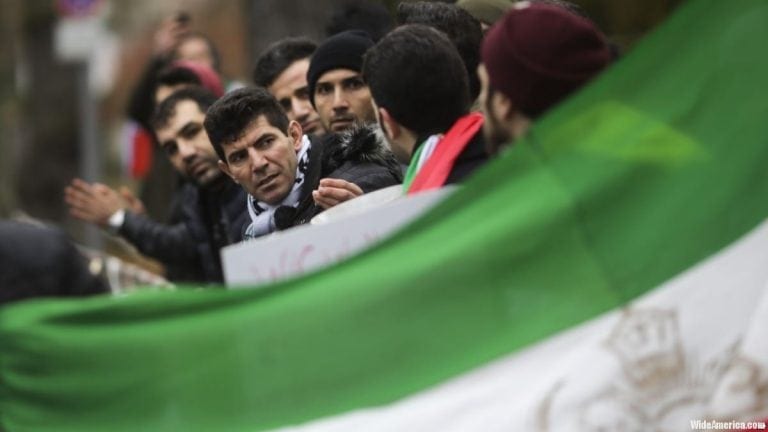The New York Times’ reactionary sexual harassment campaign runs into opposition
By David Walsh

Merkin: Injecting badly needed common sense and clarity in a national paroxysm of self-righteousness characterised by frequent wild accusations.
Daphne Merkin’s “Publicly, We Say #MeToo. Privately, We Have Misgivings”
In a column Friday in the New York Times, “Publicly, We Say #MeToo. Privately, We Have Misgivings,” critic and novelist Daphne Merkin acknowledges there is considerable opposition to the current sexual misconduct witch-hunt even within its target demographic. The columnist lands a number of telling blows.
The starting point for Merkin’s piece is the Golden Globes awards ceremony on Sunday, at which, she predicts, “Hollywood celebrities, not exactly known for their independent thinking, will turn the red carpet into a #MeToo moment replete with designer duds... The rest of us will diligently follow along on Twitter, sharing hashtags and suitably pious opprobrium.”
Truly “heinous sorts” run the US government and military-intelligence apparatus, the corporations and banks. The American ruling elite and its propagandists, including front and center the New York Times, are guilty of vast and horrible crimes against humanity in Iraq, Afghanistan, Libya, Syria, Yemen and elsewhere. The financial oligarchy does not lose any sleep over social atrocities at home either...
Merkin notes, however, that “many of us… will be rolling our eyes, having had it with the reflexive and unnuanced sense of outrage that has accompanied this cause from its inception, turning a bona fide moment of moral accountability into a series of ad hoc and sometimes unproven accusations.”
She suggests that the discussion of the issue “that has been going on in private about this reckoning is radically different from the public one.” Various women the columnist knows “say the right things, [while] expressing approval and joining in the chorus of voices that applaud” the current wave of allegations and takedowns.
“In private it’s a different story. ‘Grow up, this is real life,’ I hear these same feminist friends say. ‘What ever happened to flirting?’ and ‘What about the women who are the predators?’ Some women, including random people I talk to in supermarket lines, have gone so far as to call it an outright witch-hunt.”
Leaving aside Merkin’s individual history and motives, the appearance of the column with its acknowledgement of considerable hostility among middle-class women to the sexual misconduct campaign is a serious admission, if not a backpedaling, on the part of the Times itself. For months now, the newspaper’s editorial board, which has dedicated considerable resources to digging up dirt on various celebrities, and the rest of the American media have rolled out one headline and article after another asserting that the population is universally infuriated by the allegations.
In reality, the campaign has left substantial sections of the population, female and male, beset by economic woes and struggling to keep their heads above water, largely unaffected. The most intense “indignation” has been felt by a layer of female professionals. Merkin reveals that even here there is substantial consternation.
The article pointedly refers to a number of phenomena we have discussed on the WSWS, including the return “to a victimology paradigm for young women, in particular, in which they are perceived to be—and perceive themselves to be—as frail as Victorian housewives.” Furthermore, the columnist rightly characterizes the campaign to remove a painting by Polish-French artist Balthus from the Metropolitan Museum of Art in New York as “the kind of censorship practiced by religious zealots.”
Merkin notes a “disturbing lack of clarity” about terms such as harassment, assault and “inappropriate conduct.” She observes, moreover, that expressing “sexual interest is inherently messy and, frankly, nonconsensual—one person, typically the man, bites the bullet by expressing interest in the other, typically the woman—whether it happens at work or at a bar. Some are now suggesting that come-ons need to be constricted to a repressive degree... We are witnessing the re-moralization of sex, not via the Judeo-Christian ethos but via a legalistic, corporate consensus... There is an inquisitorial whiff in the air, and my particular fear is that in true American fashion, all subtlety and reflection is being lost. Next we’ll be torching people for the content of their fantasies.”
Merkin’s arguments have undoubtedly struck a chord. Close to 2,000 comments follow her column, many of them expressing agreement and even relief. On the other hand, numerous correspondents register anger at the lid being lifted on the repressive character of the current campaign.
The article reflects an objective reality, that increasing numbers of people are disgusted with the self-pitying, self-absorbed pronouncements of Ashley Judd, Rose McGowan, Salma Hayek and company, millionaires all, who would have us believe they have suffered the tortures of hell. In some cases, the sexual misconduct campaign has opened up new career and economic possibilities.
To be brutally frank, there is a great difference between the situation facing a working class woman, on the one hand, for whom acquiescing to sexual pressures in a factory or office may be virtually a life-and-death issue, and the choices open to an entertainer or performer, on the other, who plays along in the interests of advancing a career. Merkin herself asks rhetorically, “What happened to women’s agency? That’s what I find myself wondering as I hear story after story of adult women who helplessly acquiesce to sexual demands.”
However, where Merkin’s column falls down terribly is in its acceptance of too many of the assumptions of the sexual misconduct campaign (despite her recognition that in the current climate “to be accused is to be convicted” and that “due process is nowhere to be found”) and her failure to examine the broader, political implications.
She writes at one point, “It goes without saying that no one is coming to the defense of heinous sorts, like Kevin Spacey and Matt Lauer.” Heinous sorts? Are we talking about Adolf Hitler or Benito Mussolini? Neither Spacey nor Lauer has been charged or found guilty of a crime. Spacey, one of America’s most gifted actors and the two-time winner of an Academy Award, has been turned into a “non-person” primarily on the basis of an allegation about a sexual encounter that may have occurred more than 30 years ago. The statute of limitations, which exists for a reason, has been reached in many cases. Individuals can be guilty of loutish, boorish or inappropriate actions, and conduct that one generally disapproves of, but there are no grounds for this kind of personal demonization. It simply fuels the witch-hunt.
Truly “heinous sorts” run the US government and military-intelligence apparatus, the corporations and banks. The American ruling elite and its propagandists, including front and center the New York Times, are guilty of vast and horrible crimes against humanity in Iraq, Afghanistan, Libya, Syria, Yemen and elsewhere. The financial oligarchy does not lose any sleep over social atrocities at home either, the communities destroyed by factory closures, the poverty and homelessness, lowered life expectancy, tens of thousands of drug deaths and the social misery of a larger and larger portion of the population.
Merkin’s article largely sidesteps the enormous legal and democratic issues involved. There has been nothing like the current drive since the McCarthyite period. In some ways, there is even less of an attempt today to dress up the destruction of lives and careers—often on the basis of anonymous and flimsy accusations—in pseudo-legal guise than there was in the early 1950s. How has this large-scale effort, which the columnist herself argues may pose the danger of people being “torched” for their thoughts, gained such traction?
Sexual harassment and assault are emotive and very real issues. But portions of the American establishment have not taken up these questions because they suddenly feel deeply about abuse and injustice. They feel nothing about such matters. This is a coldly calculated political operation directed by the Democratic Party and its media orbit, including the Times.
It is one element of the reaction of the Democrats to their defeat in 2016. They hope to leverage this, the sexual misconduct/assault issue, into electoral and political success. At the same time, they want to muddy the waters and divert attention from the conditions of life for millions and the malignant social polarization.
This campaign falls into the same fraudulent category as the “fake news” censorship drive and the hysterical Russophobia that has gripped considerable layers of the upper-middle class.
People are being led by the nose—and many of them quite willingly—into supporting a campaign that will facilitate outright political repression. The present crusade has as much to do with sex as the anti-Russian campaign has to do with protecting American democracy.
APPENDIX
Original comments from the NYTimes our editors think are deserving of note
Susan
RBW
Great, insightful, thoughtful piece!
When men who pray on the vulnerable are called to account and the incidence of such behavior in the future is reduced, there is only one appropriate word, and that is hallelujah!
The infantilization of women is a deep root (see, for example, the treatment of women in almost every religion) of how humanity came to have this problem in the first place.
If we want to increase respect for women in a lasting way, we, that is, men and women, need to do some things differently here.
Ken Morris
If someone makes a pass at a subordinate employee, how is the subordinate supposed to know whether or not it can be rejected with consequence? Down the road, how can he know whether or not he’s experiencing consequences from the rejection? People shouldn’t make passes at people over whom they exercise power in the workplace. Period.
beth reese

This work is licensed under a Creative Commons Attribution-NonCommercial 4.0 International License.


















